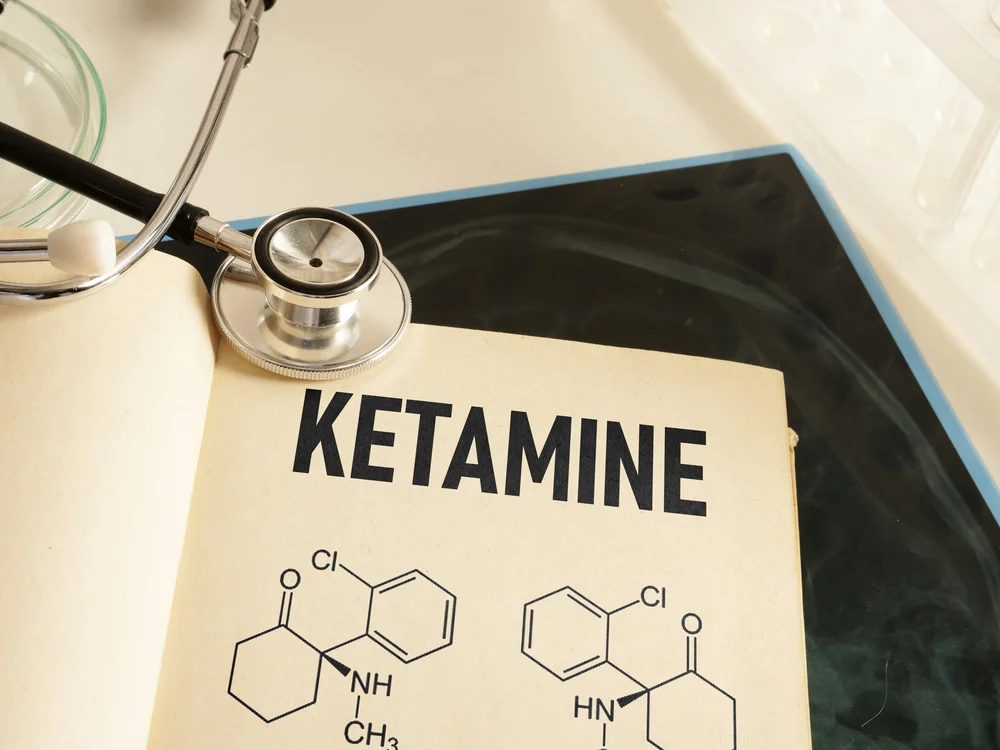This article will review the benefits of IV ketamine for depression, particularly its role in treating cases resistant to other treatments, thereby offering new hope and insights for those struggling with chronic depression.
Depression and its global impact on health
Over the last several years, depression rates have increased steadily. New reports indicate that 10% of Americans and 20% of adolescents struggle with depression. As this mental health disorder becomes more common, it’s imperative to find newer, more effective treatment options.

The challenge of treatment-resistant depression
Treatment-resistant depression (TRD) is a subset of major depressive disorder. This means someone who has major depressive disorder who tries at least two first-line antidepressants with no effects can be categorized as having treatment-resistant depression.
The first-line antidepressants usually include SSRIs and SNRIs. In these cases, an individual must receive a dosage for a minimum of 6 to 8 weeks before they are diagnosed with treatment-resistant depression.
Once diagnosed, it can be difficult to find the right treatment strategy because augmented strategies include second-generation antipsychotics as well as things like lithium or attempts to change the brain with things like electroconvulsive therapy or deep brain stimulation.
There remains a significant need for innovative solutions that have fewer side effects and offer faster relief. One such solution is IV ketamine, which falls under novel therapeutic strategies that offer much faster relief with fewer side effects for those suffering from TRD.
What is IV ketamine?
Ketamine is a dissociative psychedelic drug. It can produce symptoms of:
- Forgetfulness
- Dissociation
- Euphoria
- Pain control
- Intoxication
Originally, ketamine was derived from PCP and used in medical facilities as an anesthetic for several decades. Illegal versions are abused under the name “Special K,” among many others.
Recently, however, it has become a popular option for treatment-resistant depression, particularly among those with suicidal ideations.
IV ketamine for depression is an infusion of ketamine delivered intravenously.
How ketamine IV for depression works
Ketamine IV infusion treatment must be administered by doctors or licensed clinicians in a certified clinical setting.
Infusions are performed as an outpatient treatment, and after a couple of hours of monitoring for any potential side effects, patients return home.
The infusion itself typically lasts between 40 and 60 minutes with the entire session taking anywhere between an hour and a half to two hours.
Each session starts with situating you in a comfortable chair with an IV placed into a vein in your arm. Some people report feeling faint or lightheaded with slight warmth as the process starts. your doctor will let you know when the infusion has started.
Given the dissociative nature of ketamine, you will likely experience some dissociation where it feels as though your limbs are far away or you are not a part of your body. Many people with depression report the sensations experienced during the infusion treatment as pleasurable, as though they are distanced from their anxiety or depression. This is often described as having a heavy weight of depression being lifted.
Most individuals go through a recommended course of six ketamine IV infusions over the span of several weeks, but this is something that will be discussed with you when you reach out to medical staff or your doctor about starting this treatment.
Side effects
Ketamine is considered a safe treatment for depression, especially for those struggling with suicidal ideations. The most common side effects involve:
- Blurred vision
- Headache
- High blood pressure
- Sedation
- Nausea
There are a few situations where it should be avoided, and that include the following:
- People who have a history of schizophrenia
- Those who have a history of substance abuse
- Teenagers
- Those who are pregnant or breastfeeding
- Elderly individuals with symptoms of dementia

Development of IV ketamine use for treating depression
During the 1980s, new SSRIs like Prozac were approved by the FDA. However, these medications can take several weeks or months before they start to change the brain in any noticeable way, which means individuals who struggle with significant depression will continue to feel symptoms for several weeks or months into taking a new medication.
Since the 1970s, ketamine has been used as an anesthetic for surgery because it offers fast-acting effects to diminish anxiety and depression.
In the late 1990s, Yale researchers began to study the use of low doses of IV ketamine infusion for depression, the results of which showed that ketamine offered immediate and substantial effects.
Is IV ketamine FDA-approved for depression?
Not yet. The FDA has approved the use of the nasal spray, and continued research supports the efficacy of IV ketamine, especially for treatment-resistant depression. It is currently being developed as a treatment for depression and, over the coming years, may see changes to its FDA approval and regulatory status.
You can, however, receive an IV infusion at a doctor’s office under supervision.
The science behind IV ketamine for depression
So, how do IV infusions work in the brain?
How ketamine affects neurotransmitters in the brain
Ketamine works with different subsets of your neurotransmitters compared to traditional depression medication like SSRIs. An IV ketamine infusion for depression focuses on the NMDA (N-methyl-D-aspartate) receptors, which are responsible for improving the glutamate receptors and communication with synapses. This leads to increased mood and better brain circuit function.
How traditional antidepressants work
SSRIs increase the amount of serotonin in your brain. It does this by not only increasing extracellular concentrations of serotonin but by blocking the reuptake of serotonin. SSRIs get their name from this function. They are able to selectively bind to the serotonin transporter and prevent serotonin from being reabsorbed.
Under normal circumstances, when things like serotonin or dopamine are released into the brain, they get reabsorbed within a certain time frame, but with these medications, that reabsorption doesn’t happen, which means the effects of the serotonin remain in the brain for longer, which can help combat symptoms of depression.
How ketamine works
Ketamine creates a dissociative experience or a trip. For this reason, it is often abused in clubs or at parties. But when it’s taken as treatment for depression, it changes how the brain works.
It’s important to understand that people who struggle with depression, especially treatment-resistant depression, lose essential connections in the brain that are responsible for communication between nerve cells. These connections are called synapses.
After the first dose of ketamine, synapses in people with depression start to grow again, which means that communication gets improved.
Certain neurons in the brain use a neurotransmitter called glutamate to communicate with one another. The nerve cells each require glutamate receptors in order to receive the message. People who struggle with depression sometimes have nerve cells with weak or deactivated glutamate receptors.
Ketamine can provide new glutamate receptors to the nerve cells that are currently unable to receive messages.
This means that people who have struggled with traditional medicine and found no relief may have a better chance if they go with a ketamine IV for depression because it doesn’t just temporarily provide more serotonin; it actually changes the way the brain communicates and functions.
Rapid action of ketamine compared to traditional antidepressants
In the late 1990s, Yale researchers began studies with low doses of IV ketamine infusion for depression, which showed immediate and substantial effects.
With IV ketamine treatment for depression, the changes to the brain happen within the first 24 hours, so relief is felt immediately. With traditional antidepressants, it can take several weeks before changes are noticed, and those changes aren’t permanent.
Methods of administration
A prescription version of ketamine called esketamine (brand name Spravato) is administered via a nasal spray. This nasal spray version was approved by the FDA for use in cases where patients had developed treatment-resistant depression. It has been approved since 2019 but still requires supervision from a certified clinic or doctor.
The other option, which is quickly becoming more popular, is ketamine IV therapy for depression. With intravenous infusion, ketamine is delivered using a small needle. This ensures that the ketamine reaches your bloodstream immediately, and full infusion takes around 40 minutes, during which time you will be continually monitored. Effects start to take place within that time frame.

Benefits of IV ketamine treatment
What are the benefits of an IV ketamine infusion for depression?
Immediate relief of depressive symptoms for many patients
Ketamine benefits can be felt in an average of 30 minutes, which means that those who are struggling with significant depression symptoms can get relief immediately. This relief is juxtaposed with antidepressant medication, which doesn’t offer relief until you’ve been taking the medication for several weeks.
Potential to decrease suicidal thoughts quickly
Those who have treatment-resistant depression might feel that there is little hope that they will ever feel good again. But IV ketamine infusion for depression is a way to provide relief to those who haven’t found it anywhere else.
Moreover, ketamine IV for depression has shown significant promise among those who have suicidal ideations, which means it can literally be a lifesaver for some.
63% of those with MDD or TRD who have suicidal ideations no longer experience suicidal thoughts after just three days of ketamine IV therapy for depression.
High efficacy in treatment-resistant cases
One of the most important benefits of IV ketamine treatment is that it has a high rate of efficacy, particularly for those with treatment-resistant depression.
An IV ketamine infusion for depression has been shown to offer a 70% success rate for both TRD and MDD.
This means that individuals who are struggling with depression and can’t find relief through other medications or alternative treatments may find the relief they need with ketamine. Ketamine is actually most successful in those with major depressive disorder and treatment-resistant depression because of the way in which it interacts with the brain and makes changes to synapses, neurotransmitters, and glutamate receptors.
For those with treatment-resistant depression, another medication is simply unable to make the neurological and biological changes that provide instant and long-term relief, but an IV ketamine infusion for depression shows a great deal of promise in this regard.
Reduction in anxiety symptoms
Similar studies have reviewed the benefits of IV ketamine treatment as it relates to anxiety disorders. Given the high correlation between anxiety and depression, the benefits afforded for anxiety disorders can also benefit those with major depressive disorder or treatment-resistant depression.
Nearly 90% of patients in clinical trials for IV ketamine infusions for anxiety saw a reduction or alleviation of their symptoms after just two weeks.
This means that patients who struggle not only with depression but with anxiety can get immediate improvement in depression symptoms within a matter of hours and see long-term improvement in depression and anxiety symptoms over the course of several weeks.
Neuroplastic effects
Many of those who undergo treatment show fast improvement after the first or second ketamine IV for depression.
This is due in large part to the way in which ketamine IV infusions have neuroplastic effects and change the way the brain fires and functions. As mentioned, with IV ketamine for depression, the brain is able to grow new glutamate receptors and new synapses, which enhances communication in the brain and changes mood.
Low risk of addiction
While ketamine can be addictive for those who have a history of substance abuse, it has a low risk of addiction compared to several other substances.
Enhanced quality of life
Studies indicate that 35% of those who use IV ketamine treatment for depression have complete remission after the course of their treatment.
This means that those who take advantage of IV ketamine infusion therapy can enjoy a significantly enhanced quality of life. While 1/3 will enjoy complete remission, many more will enjoy significantly reduced symptoms.
Long-term benefits observed in some patients
IV ketamine for depression has been shown to offer short-term relief for depression. The relief noted in studies has been significant. Many groups who participated in trials using ketamine continued with other medications as well.
Results found that the use of ketamine as an adjunct treatment helped those with serious depression enjoy remission within 16 weeks.
It is important to note that an IV ketamine treatment for depression is not a permanent solution. It can certainly help modulate the glutamate receptors and synapses in the brain, but the neuroplasticity that causes the changes can, over several years, revert to their original state, in which case additional treatment might be required.
This is something you can discuss with your care team as they monitor your symptoms.

Who can benefit from IV ketamine?
IV ketamine for depression can help those with:
- Major depressive disorder (MDD) and
- Treatment-resistant depression (TRD)
Ketamine is not necessarily the first treatment option if you struggle with depression. It is reserved for more serious treatment, where other pharmacological and non-pharmacological interventions have proven ineffective.
IV ketamine treatment for depression is not a permanent solution, nor is it a cure for depression or treatment-resistant depression. However, it can significantly improve symptoms for a set amount of time, which means those who have not found relief elsewhere can benefit the most from trying this treatment option.
Consider Tom:
Tom struggled with depression his entire life. He didn’t know what it was like to live without depression. As he grew up, he continued to try several medications, none of them effective. He tried different therapies with unwanted side effects like weight gain and increased suicidal thoughts but no relief from his depression.
When he was in his 40s, married with two children, and in a particularly low spot in life, Tom didn’t think that he could handle it anymore. But then his doctor suggested an IV ketamine infusion. Almost immediately, Tom noted that his symptoms were gone. What felt like a blanket of depression that was wrapped around him his entire life was suddenly taken away.
Tom had never felt this good and no longer needed any form of medication. He could go about his life with improved mood, energy levels, concentration, and hope.
In Tom’s case, he struggled not only with major depressive disorder but eventually treatment-resistant depression, and his IV ketamine infusion for depression proved very useful.
Now, let’s look at another example.
Margaret struggled with depression. Her doctor prescribed Prozac, and Margaret found that her symptoms became more manageable. As long as she utilized self-care routines like good exercise and a healthy diet and continued to use Prozac, she was able to manage her symptoms.
In Margaret’s case, regular medication worked just fine to help her manage, and as such, ketamine IV therapy for depression would be unnecessary.
It is always best to speak with a primary care physician or mental health provider before making the decision to incorporate any new treatment, including IV ketamine treatment for depression. Your previous experiences, symptoms, goals for recovery, and side effects all need to be taken into consideration.
Considerations for patients with chronic depression
If you have chronic depression and you have tried other treatments but they have failed, you might consider IV ketamine treatment for depression. But you need to be aware that there are certain circumstances where it may not be advisable.
- Firstly, if you have any history of substance abuse, this may not be the right option for you as it does have low addictive qualities but addictive qualities nonetheless. It can also be a significant trigger if you are in recovery.
- Secondly, if you have a history of heart conditions or high blood pressure, this might not be an effective treatment for you, and that is something to discuss with your doctor.
- Thirdly, the effects of ketamine on the brain can be damaging to younger brains that have not yet fully developed. For this reason, patients with chronic depression who are under 25 should continue to utilize other methods of care. It is particularly dangerous for younger teenagers.
Summing Up
Ketamine may have been derived from PCP, but today, it presents a viable consideration for those with major depressive disorder, treatment-resistant depression, and even anxiety. IV ketamine infusion for depression is something that may not be FDA-approved yet, although nasal spray versions of ketamine are. That said, you can still receive care and infusions from qualified medical professionals at certified clinics.
If you have tried other medications and found little to no relief, ketamine treatment might be a solution that offers improved quality of life, the potential for complete remission, and immediate changes to brain structure. This is something you will need to weigh against any risks and potential side effects, as well as your health history.
It’s important that you keep an open dialogue with your healthcare provider if this is something you are considering, and as a healthcare provider, it’s important that you remain open about the potential use of ketamine for your patients with TRD.